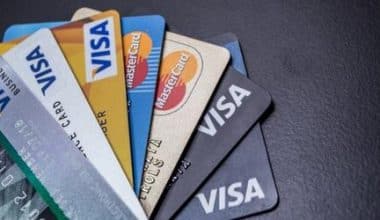A credit freeze is an option that may be familiar to you if you’ve experienced credit card fraud or identity theft. A freeze on your credit records can keep your personal information safe and limit the number of new credit accounts that can be opened in your name. A freeze on your credit reports might make it difficult to obtain financing, whether it’s for a home or a car. In order for lenders to see your credit reports, you must unfreeze your credit. Let’s take a look at the three major credit agencies, Equifax, Experian, and TransUnion, and see how you may unfreeze your credit.
What Is a Credit Freeze?
With a security freeze or credit freeze, you can limit who can see your credit reports. By freezing your credit, identity thieves won’t be able to use your name to apply for new credit if they need to do a hard inquiry on your unfreeze credit reports.
Even if you freeze your credit, everyone won’t be able to look at your credit history. Even if you put a freeze on your credit report, companies with whom you already have credit will still be able to see it. And government agencies will be able to look at your credit file if they are carrying out a court order or search warrant.
How a Credit Freeze Works
When you freeze your credit, you’re telling Equifax, Experian, and TransUnion you don’t want anyone to see it. Again, there are some people who can look at your credit file even when it’s frozen.
You can keep a credit freeze in place for as long as you want; it’s up to you to decide when to remove it. Thanks to a change in the law in 2018, you no longer have to pay anything to freeze your credit. In the past, it cost money to freeze and unfreeze your credit.
Freezing your credit won’t hurt your credit score and won’t stop you from getting your free credit report every year. You must release the freeze so creditors may examine your file if you want a loan or credit card. You don’t have to lift a credit freeze, though, to do things like look for a job or rent an apartment.
Pros and Cons of Freezing Your Credit Report
There are pros and cons to freezing your credit report that is important to keep in mind. If you’re not sure whether or not you should freeze your credit, here’s how the pros and cons stack up.
Pros
- Protects your credit report, which can help stop identity theft and fraud.
- No longer do you have to pay a fee to freeze or unfreeze your credit.
- Online, it is easy and quick to freeze or unfreeze credit.
- Your credit score won’t go down if you freeze your credit.
Cons
- A credit freeze won’t stop anyone from getting into your credit file completely.
- Before you can apply for loans, you will need to thaw out your credit.
If you’re afraid of identity theft and don’t intend to apply for additional credit in the near future, a credit freeze may be a good choice. It adds security to your unfrozen credit reports, which is reassuring as fraud and identity theft escalate. And the fact that you don’t have to pay a fee to freeze or unfreeze your credit is a pleasant bonus. Because there are other ways to keep people from getting into your credit history.
How to Unfreeze Your Credit
You might decide at some point that you no longer need the credit freeze. Or, you may want to lift the freeze temporarily so you can apply for a mortgage, credit card, or another loan.
You must contact each credit bureau to unfreeze one or all three credit reports. TransUnion and Experian will ask for the PIN you set up earlier to help them to unfreeze your credit.
When you ask a credit bureau to unfreeze your credit, it has to do so within a certain amount of time. If you call or go online to make a request, we must lift the freeze within one hour. If mail sends the request, we must lift the freeze within three business days.
How Do You Unfreeze Credit With Experian?
Only Experian needs a personal identification number (PIN) to let you use you are unfreeze credit again.
A credit freeze lift from Experian can be for a certain amount of time, but there is no maximum. The online form warns you, though, that once you’ve sent it in, you can’t change the dates for unfreezing your credit.
Unfreeze credit Experian also provides a one-time-use PIN. This can help make sure that the creditors you want to see only see your information. You get the PIN from Experian, and you give it to the person or business checking your credit.
How Long Does It Take to Unfreeze Credit?
When you have an account established with that credit agency, you will be able to unfreeze your credit fairly promptly on their website after you have logged in. However, to be on the safe side, you should plan to wait for the request to be processed for up to an hour. When you unfreeze your credit via phone, the process will take about the same amount of time as when you do it online.
If you send a request to unfreeze your credit over the mail, the credit bureau may have you wait up to three business days after they receive your request before the freeze is removed from your report.
What Number Do I Call to Unfreeze My Credit?
You can also manage your freeze by calling us at (888) 298-0045 and giving us your information. To ensure that you are who you say you are, we will ask for specific information from you. For the purpose of identity verification, you will also have the choice to either obtain a one-time PIN through text message or answer questions based on information found in your Equifax credit report.
Why Would My Credit be Frozen?
There are a variety of reasons why someone would choose to freeze their credit record. Some people resort to it after having their identities stolen or after experiencing fraud. Some people do it to get their minds off the fact that the data they gave to a company, such as credit card information or Social Security numbers, may have been stolen in a hacking attack. Other others do it because it gives them peace of mind.
What Causes Frozen Credit?
A credit freeze, also known as a security freeze, is an anti-fraud tool in which a consumer’s credit report is not shared with any third parties by a credit agency. This prevents the information from falling into the wrong hands. Consumers who have reason to believe that their identities may have been stolen frequently make requests to their credit bureaus to “freeze” their accounts.
How Do You Unfreeze Credit With Equifax?
By setting up a “my Equifax” account, you can unfreeze your Equifax credit report online. No longer do you need a PIN to freeze or lift your Equifax credit online. Equifax lets you temporarily unfreeze your credit for a certain creditor or for a certain amount of time, ranging from one day to one year. You can also unfreeze your credit, which is not something we recommend. If you call or write to Equifax to unfreeze or restore a credit card, you will need a PIN.
How Do You Unfreeze Credit With TransUnion?
If you want to unfreeze your TransUnion credit report online, you may need to sign up for a new TransUnion account with a username and password. You don’t need a PIN anymore. You can unfreeze your credit from TransUnion for one to 30 days, starting on a date you choose. Furthermore, you can lift the freeze for a certain amount of time or for certain creditors for whom you can make a temporary access code. This code can be used multiple times, unlike the unfreeze credit Experian code, which can only be used once.
How Do You Unfreeze Your Credit Report?
Once your credit report has been opened, the quickest and most convenient method is to contact or go online to the specific credit bureau (or bureaus) that you use to do this. But you can also write to them if you want to.
If you froze your credit report with Experian, Equifax, and TransUnion, you’ll need to contact each one separately to help unfreeze your credit. You might also need the PIN or password you got when you froze your credit the first time.
Keep in mind that a credit lock is not the same as a credit freeze. Take the time to learn the difference between freezing and locking your credit.
When Should You Unfreeze Your Credit?
You need to unfreeze your credit before applying for a new credit line. For example, if you’re looking for a house, getting a credit card for a retail store, or applying for a car loan, the lender will need to pull your credit record to see if you are eligible. If your credit report is still frozen, lenders won’t be able to access it and you’ll likely be denied a loan.
When to Unfreeze Credit
When you apply for a credit card, mortgage, or another loan, you may want to unfreeze your credit. In the same way, when you apply for credit, your banks and lenders will look at your credit report to decide whether to give you credit. And they can only do this if you unfreeze credit reports that are not frozen. There are two ways to get your credit to work again.
#1. Temporarily Unfreeze Credit Reports
If you put a freeze on your credit because you thought or knew that your personal information had been stolen or used wrongly, you may only want to lift the freeze for a short time. This is called “thawing.” To thaw your credit, you can lift your credit freeze for a certain number of days to give lenders time to check your unfrozen credit reports. If you know when you’ll need your credit thawed, you can plan ahead.
#2. Permanently Unfreeze Credit Reports
If you froze your accounts as a safety measure but think they are all safe, it might make sense to permanently unfreeze your credit. This could spare you the headache of unfreezing and refreezing your credit while borrowing money.
When you’re ready to unfreeze your credit, you might find it helpful to remember how you did it in the first place.
Did you do it online? If so, try to find your username, password, and any other information you might have used. Remember if you used a PIN while calling someone and what it is.
If you want to freeze or unfreeze your credit, you have to contact each credit bureau. With fraud alerts, you only have to contact one bureau.
How Do I Unfreeze My Bank Account Online?
In the event that your bank has frozen your account due to questionable activity, all you need to do is give them a call to unfreeze it. If it is blocked for any other reason that concerns debts and bankruptcy, the best move to take is to go to court and vacate the judgment as soon as possible in order to immediately unfreeze your account. This will allow you to access your money again.
How Do I Release a Frozen Bank Account?
You will need to go to the branch of your bank that is closest to your home in order to accomplish this. In this section, you will be required to submit a written request to revive the account. Please ensure that you are in possession of the required papers for the KYC process. Keep in mind that the bank is prohibited from charging you a fee in order to reactivate your account.
Credit Freeze vs. Fraud Alert
Putting a fraud alert on your credit profile is an alternative to freezing it. A fraud alert can keep people from looking at your credit history without your permission for a year. A longer fraud alert can keep it safe for up to seven years.
If your identity has already been stolen, extended fraud alerts might be a better choice. To set up an extended fraud alert, you must first file an identity theft report, then contact one of the three major credit bureaus to place the fraud alert. If you tell one credit bureau, that bureau must tell the other two.
A fraud alert or extended fraud alert won’t completely lock down your credit reports as a credit freeze does. But they do require creditors and lenders to take the extra step of verifying your individuality before giving you new lines of credit in your name. This could be an easier solution if you don’t want to freeze and unfreeze your credit file.
FAQs
Is There a Fee to Unfreeze Credit?
There is no charge to freeze or unfreeze your credit with any of the three major credit agencies.
How Soon Can You Unfreeze Credit After a Freeze?
Your credit can be unfrozen at any time, even if you just did it. You just need to send a request to the credit reporting agency online, by phone, or by mail.
Does a Credit Freeze End Automatically?
Most of the time, a credit freeze will stay in place until you ask for it to be lifted. But in a few states, a freeze on your credit may end after seven years.
{
“@context”: “https://schema.org”,
“@type”: “FAQPage”,
“mainEntity”: [
{
“@type”: “Question”,
“name”: “Is There a Fee to Unfreeze Credit?”,
“acceptedAnswer”: {
“@type”: “Answer”,
“text”: “
There is no charge to freeze or unfreeze your credit with any of the three major credit agencies.
“
}
}
, {
“@type”: “Question”,
“name”: “How Soon Can You Unfreeze Credit After a Freeze?”,
“acceptedAnswer”: {
“@type”: “Answer”,
“text”: “
Your credit can be unfrozen at any time, even if you just did it. You just need to send a request to the credit reporting agency online, by phone, or by mail.
“
}
}
, {
“@type”: “Question”,
“name”: “Does a Credit Freeze End Automatically? “,
“acceptedAnswer”: {
“@type”: “Answer”,
“text”: “
Most of the time, a credit freeze will stay in place until you ask for it to be lifted. But in a few states, a freeze on your credit may end after seven years.
“
}
}
]
}
Related Articles
- Venmo Account Frozen: Best 2022 Stress-free Solutions (Why is Venmo Freezing?)
- Ohio Small Business Grants: A Comprehensive List For any Business (Updated!)
- FREE CREDIT SCORE: How to Check My Free Credit Score (+Best Free Credit Score Sources)
- BUSINESS CREDIT SCORE: How to Check Your Business Credit Score






